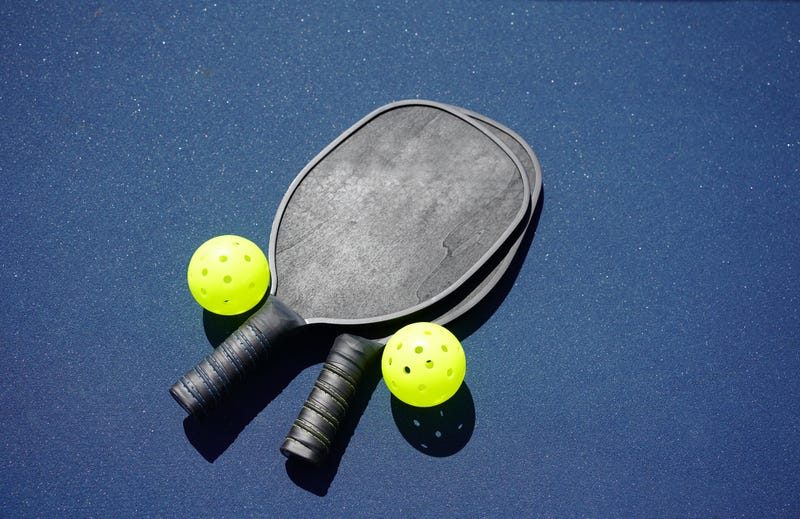
While pickleball may be one of the fastest-growing sports in America, it is also quickly becoming one of the most annoying when it comes to the racket that comes with it.
With thousands taking up the spot, resulting in packed courts and hours of practice, noise complaints have started to pop up, and in some places, people have even filed lawsuits.
KCBS Radio’s Liz Saint-John spoke with Bob Unetich, an avid pickleball player and founder of Pickleball Sound Mitigation, about the recent controversy facing the sport.
“It’s a plastic ball hitting a flat surface, and that surface vibrates and pushes air at a pretty high rate at a pitch that’s annoying to people,” Unetich said.
Unetich says that while a sound can be annoying and you think nothing of it when it goes on for as much as 12 hours at a time it can start to become a nuisance.
“If you do that without planning ahead of time, and taking some things into account and reducing the sound level or taking steps to minimize the sound level, it’s likely to lead to problems,” Unetich said.
This issue is what led Unetich to start his company, so pickleball fans can play without disturbing those who only know the sport because of its signature sound.
One thing that Unetich says players can do is to get portable sound barriers and quieter balls and paddles.
Other remedies are more drastic, including moving or building courts further from residential areas and putting up structures as more permanent barriers.
Indoor facilities are another option, but Unetich says that acoustic dampening and sound reduction methods should still be used even then so that it doesn’t become a “big echo chamber.”
“Putting walls and a roof over a court is a solution. An expensive one, but it’s a way to help the neighbors,” Unetich said.
There have been those who haven’t taken precautions to make their games quieter, and in some cases, Unetich says lawsuits have been filed, and courts have been closed down.
Unlike tennis, Unetich says that pickleball is a slower sport and has caught on due to its appeal to those who can’t move as quickly as they would like to, both younger and older players.
“At all ages, people can play. People with disabilities and elderly people who can’t play many other sports,” Unetich said.


